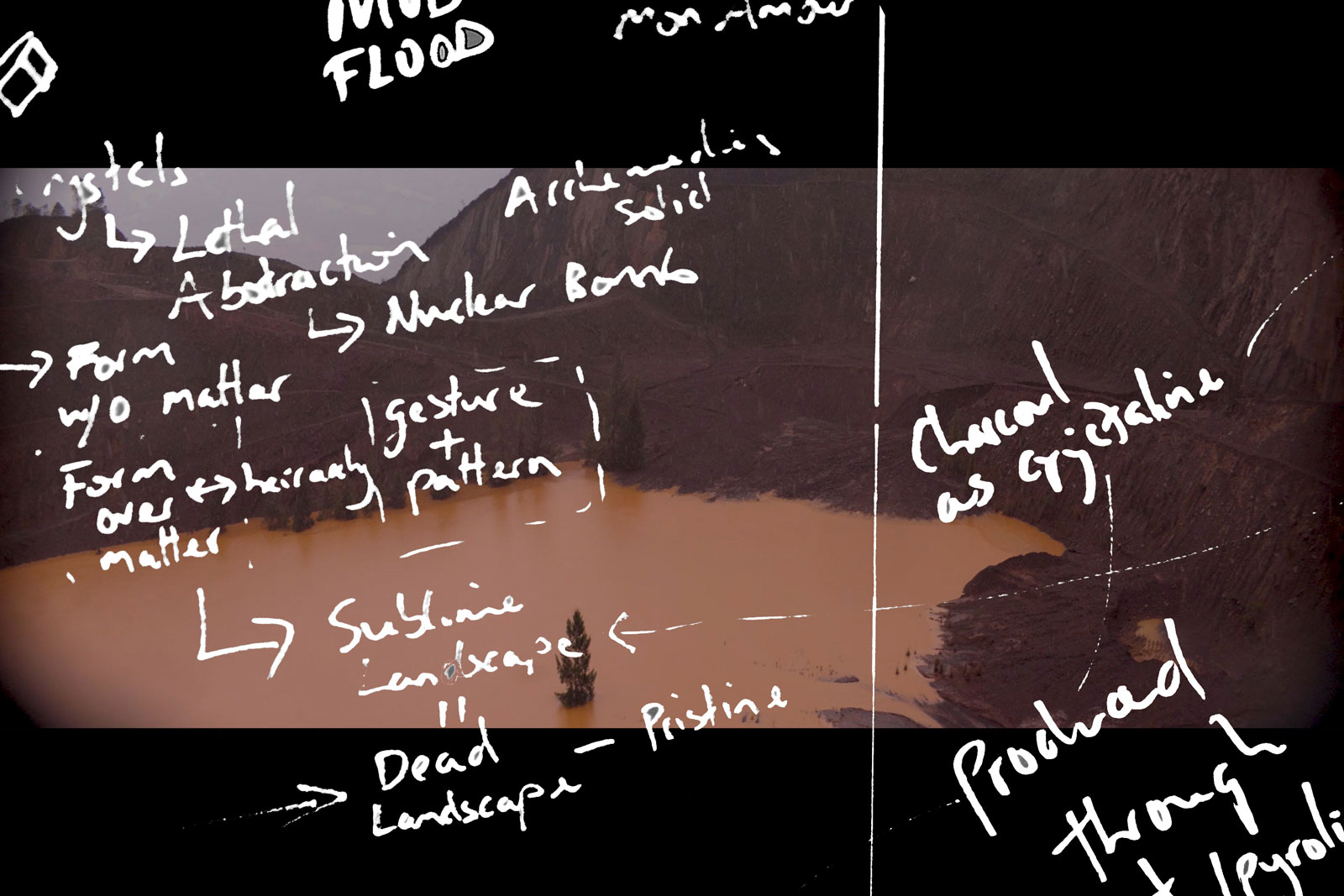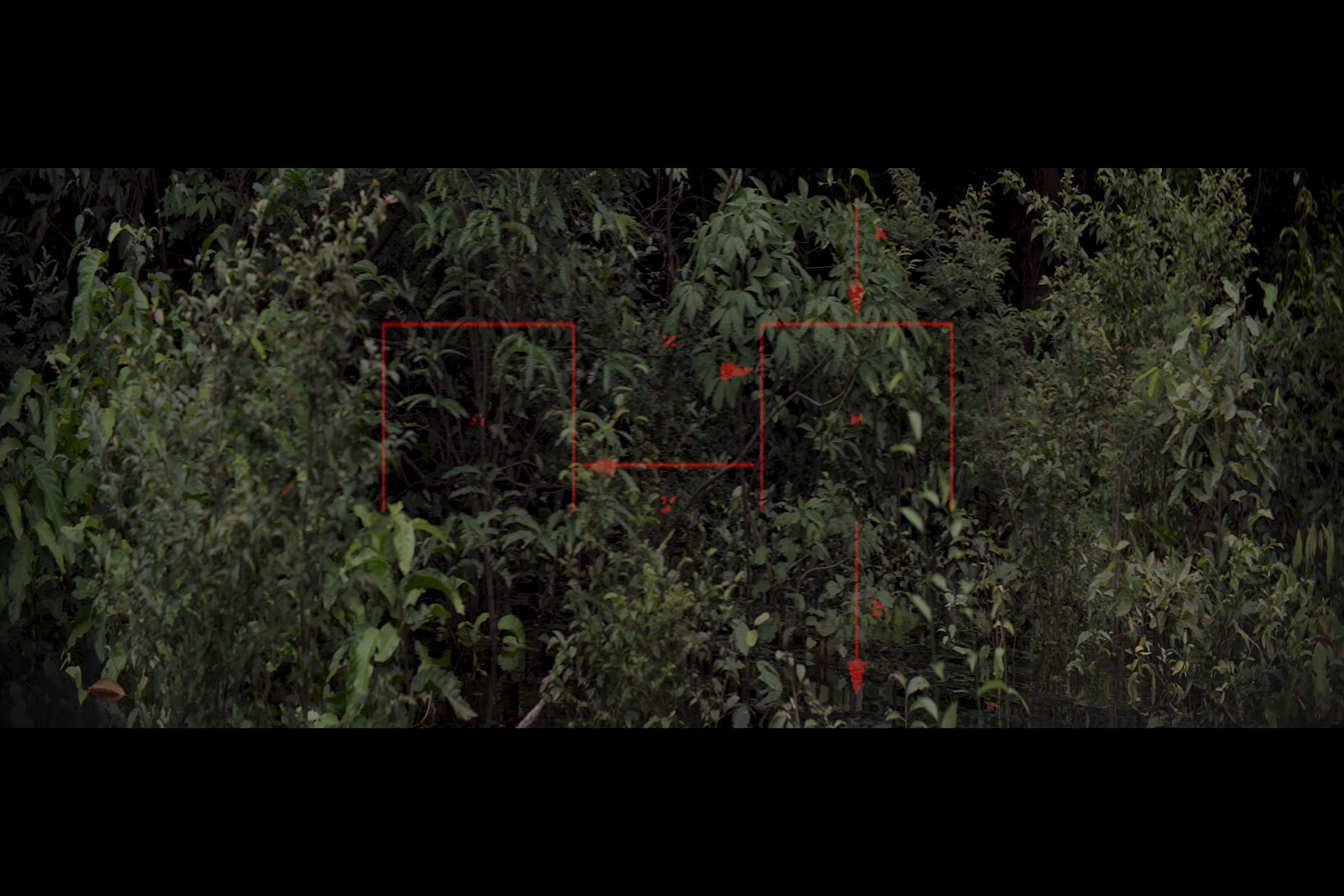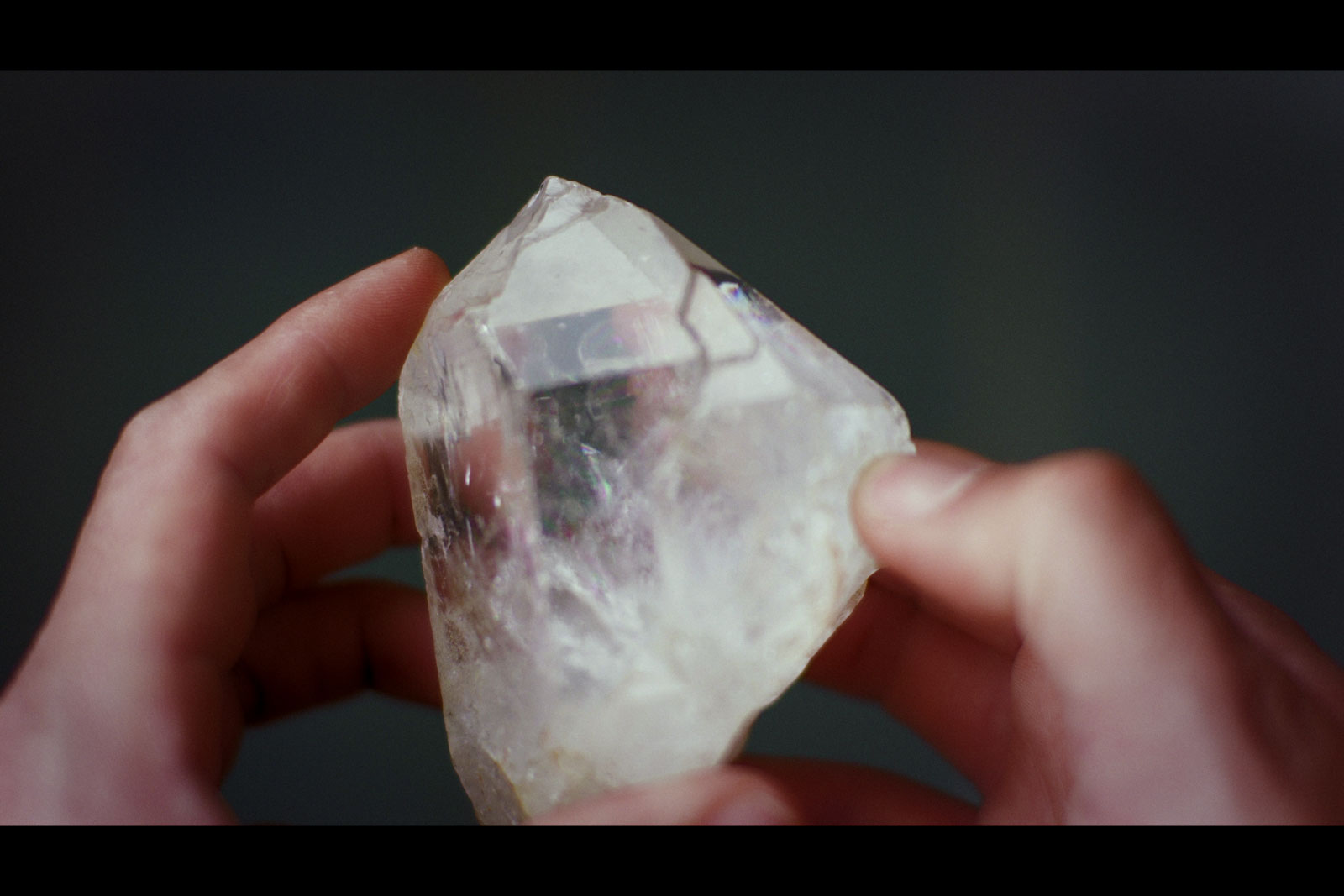
'Soot Breath/Corpus Infinitum' by Denise Ferreira da Silva & Arjuna Neuman
Immaterial Ecologies. A gathering to resynchronise land and body.
Event Slider
Date
- / Cancelled / Sold out
Soot Breath/Corpus Infinitum is a video dedicated to tenderness. It reproduces a radical sensibility we learned from listening to the blues, from listening to skin, to heat, and from listening to echoes, listening itself.
We ask, could tenderness dissolve total violence? Could tears displace total extraction?
Towards this we reimagine the human and its subject-formation away from predatory desire and lethal abstraction, away from the mind and eyes and noble senses, away from total extraction and its articulations as ethnography, border regimes, slavery, sexual abuse, trade and mining.
Instead we turn to skin, resonance, and tenderness as the raw material of our reimagined earthy sensibility. Remembering that to be tender is to soften like supple grass, and to attend to is to care for, to serve. Serving, we know is the opposite of slavery just as violence dissolves with care.
A set of installations integrating sound, sculpture, film and performance are presented together with a selection of works from the Collection of the Modern Art Centre to create an atmospheric setting through the buildings of the Gulbenkain Foundation and the Garden.
Works by Lourdes Castro and Mimosa Echard will be exhibited in the hall of the Headquarters Building; installations by Martín Llavaneras can be found in room 1 and in the garden; works by artist Sunny Pfalzer will be presented in room 2; and a video-installation by Denise Ferreira da Silva and Arjuna Neuman will be presented in Auditorium 2.
IMAGES



BIOGRAPHIES
Denise Ferreira da Silva is an artist and Professor and Director of UBC's Social Justice Institute-GRSJ and Adjunct Professor at Monash University’s School of Art, Design, and Architecture. She is the author of Toward a Global Idea of Race (University of Minnesota Press, 2007), A Dívida Impagavel (Oficina da Imaginaçāo Política and Living Commons, 2019), Unpayable Debt (Sternberg/MIT Press, 2021) and co-editor (with Paula Chakravartty) of Race, Empire, and the Crisis of the Subprime (Johns Hopkins University Press, 2013). Her several articles have been published in leading interdisciplinary journals. Her artistic works include the films with Arjuna Neuman and the relational art practices Poethical Readings and Sensing Salon in collaboration with Valentina Desideri. She has exhibited and lectured at the Pompidou Center (Paris), Whitechapel Gallery (London, MASP (Sāo Paulo), Guggenheim (New York), and MoMA (New York). She has written for publications from Liverpool Biennale, 2017; Sao Paulo Biennale, 2016, Venice Biennale, 2017, and Documenta 14 and published in journals such as Canadian Art, Frieze, Pass, Texte Zur Kunst, and E-Flux. She is a member of the Collective EhChO.org and an Editor of Third Text.
Arjuna Neuman is an artist, filmmaker and writer, with recent presentations at CCA Glasgow; Centre Pompidou, Paris; Manifesta 10, Marseille; Showroom Gallery, London; TPW Gallery, Toronto; Forum Expanded, Berlin Berlinale; Jameel Art Centre, Dubai; Berlin Biennial 10, Germany; Serpentine, London X Qalandia Biennial, Palestine; Gasworks, London; Bold Tendencies, London, UK; Or Gallery, Vancouver; Whitechapel Gallery, London; Istanbul Modern, Turkey; MAAT and Docslisboa, Portugal; Sharjah Biennial 13, UAE; Bergen Assembly, Norway; at NTU Centre for Contemporary Art, Singapore; the 56th Venice Biennale and SuperCommunity; Industry of Light, London; the Haus Der Kulturen der Welt; at Ashkal Alwan and the Beirut Art Centre, Lebanon; Le Gaite Lyric, Paris; the Canadian Centre for Architecture; and the Rat School of Art, Seoul amongst others. As a writer, he has published essays in Relief Press, Into the Pines Press, The Journal for New Writing, VIA Magazine, Concord, Art Voices, Flaunt, LEAP, Hearings and e-flux.
IMMATERIAL ECOLOGIES
«Immaterial Ecologies» programme includes conversations, concerts, performances, poetry sessions and other artistic practices that will reflect upon the immaterial and spiritual dimensions of ecology.
More infoThe Calouste Gulbenkian Foundation reserves the right to collect and keep records of images, sounds and voice for the diffusion and preservation of the memory of its cultural and artistic activity. For further information, please contact us through the Information Request form.
